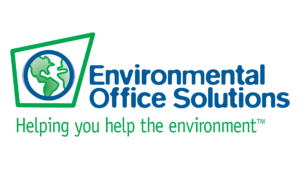Sea The Future targets plastic waste
<![CDATA[
Minderoo Foundation Pty Ltd., Australia, has announced a $ 300 million commitment to a new industry-focused initiative called Sea The Future that is designed to end plastic waste globally. The initiative is projected to raise more than $ 20 billion annually for recycling, collection and environmental remediation of plastics.
“Industry, fully supported by governments and regulators, is the only sector that can drive the urgent, global shift needed to save our oceans from plastic waste,” says Andrew Forrest, founder and chairman of Minderoo Foundation. Forrest is the founder and former chairman of iron-ore producer Fortescue Metals, based in Australia.
“This existential threat requires a global solution able to transcend borders, politics and corporate responsibility,” he adds. “We have less than five years to make this happen. Only a broadly adopted, international, industry-led approach will keep plastics in the economy and out of the environment.”
A form of voluntary EPR
Sea The Future is a kind of voluntary extended producer responsibility (EPR) program. It will attach a voluntary contribution on fossil-fuel-based plastics. No such contribution would be attached to recycled plastics, immediately making recycled material a cheaper alternative feedstock, Minderoo says. “This drives demand that dominoes through the value chain and turns plastic waste into a cashable commodity, driving collection efforts, poverty alleviation through dignified work and recycling, particularly in South East Asia where the waste problem is at its worst,” the organization says.
Bryant Plavsic, head of plastic at Minderoo, says the organization is working with companies throughout the supply chain on the details of the program. “This global systemwide solution is a significant shift for industry and will require concerted effort.
“Setting up the governance and audit structure of this new global industry system is a crucial step that will take time, and investment,” he says, citing the $ 300 million commitment from Minderoo.
Plavsic says the organization’s modeling demonstrates that $ 200 to $ 5,000 per metric ton are required to incentivize the collection and recycling of used plastics, with the more difficult to recycle material requiring more investment. He says this equates to between about 20 percent to 50 percent of the cost of resin, which translates into a 1-to-3-cent increase in the cost of a branded beverage bottle, for example. “This range is based on industry-provided estimates collected from a broad array of global interviews with industry,” he says. “Further economic modeling is required to outline the details including the different contribution per [metric ton] by polymer based on the objective of collecting the waste in different regions, the price elasticity of plastic demand and ensuring industry participates in the initiative.”
Forrest told Marketwatch that 100 or so companies are major plastic producers and he has reached out to them during the rollout. However, no participants have been announced as of yet.
Funds raised by the Sea The Future are projected to amount to at least $ 20 billion annually, Minderoo says. The funds will be collected and co-managed by a global environmental and industry body with appropriate regulatory approvals. The funds raised will be channeled into new recycling technologies, collection infrastructure and recovery, where possible, of existing marine and terrestrial pollution.
“Funds generated from the voluntary contribution would be collected and co-managed by the companies involved in the initiative, under an agreed constitution with independent oversight and with appropriate regulatory approvals,” Plavsic says. “We expect significant input from NGOs (nongovernmental organizations) in this process.”
He says the funds would be applied toward “cutting-edge recycling technologies and addressing oceanic plastic waste by funding remediation.”
Plavsic adds, “There will be a rigorous governance system put in place to audit the collection of the funds and the certification of the plastic through the value chain.”
Independent audit and certification of the new system will be keys to ensuring a publicly regulated and transparent market, Minderoo says. The organization says it has committed to underwrite up to five years of audit fees for a total cost of $ 260 million, plus $ 40 million in establishment costs, subject to appropriate conditions. The results of this audit and verification will be posted to a central database, accessible online to anyone around the world.
Analytical support is provided by SystemIQ, a consulting organization on environmental matters. McKinsey & Co. also provides research and analytical support.
A new digital and social media campaign, #NOPLASTICWASTE, has been launched to explain the realities of plastics production, highlight the opportunity that exists and galvanize public support for the initiative.
A number of initiatives have been announced recently that are focused on addressing plastics in the environment and establishing solid waste and recycling infrastructure in developing countries, including the industry-sponsored Alliance to End Plastic Waste. Plavsic says Minderoo is “engaging widely with a number of organizations, including the Alliance to End Plastic Waste, and are seeking potential projects to work on together.” He adds, “Our point of difference is presenting a cross-industry, systemwide solution to end plastic waste.”
NGO support
Governments and NGOs have expressed support for the initiative, Minderoo says.
M. Sanjayan, CEO of Arlington, Virginia-based Conservation International, says, “This bold yet attainable industry-driven solution is exactly what is needed to match the scale of the problem. Adopting this initiative can help ensure we have #NoPlasticWaste in our lifetime. After all, no one company or country wants to shoulder the burden on their own. The Sea The Future initiative brings us all together to be the solution our environment demands.”
"This Minderoo Foundation initiative represents exactly the type of systemic thinking needed to build a circular economy, by creating value for used plastic and helping decouple our economy from fossil fuels,” Andrew Morlet, CEO of the U.K.-based Ellen MacArthur Foundation, says. “It’s well-aligned with the Ellen MacArthur Foundation’s vision to eliminate the plastics we don’t need and to circulate those we do. Together we can make plastic pollution a thing of the past."
“We need the world to treat plastic like other commodities and we can do this if we eliminate the price disparity between fossil fuel plastic and recycled plastic,” Minderoo’s Forrest says.
“The Sea The Future initiative will be the catalyst needed to shift the entire economic system from bad, environmentally detrimental plastic to good, permanently recycled plastic, and the market will then take care of the rest,” he continues. “It puts a world with no plastic waste in clear sight.”
Supply chain support
The global plastics supply chain has responded positively to the initiative, the organization says.
Alan Jope, CEO, Unilever Plc, says, “The protection of our oceans is fundamental to the preservation and flourishing of life on earth. At Unilever we are committed to ending ocean plastic and we welcome cross-industry initiatives, like the Minderoo Foundation’s, that is looking across the value chain to identify scalable solutions.”
Brian Smith, president and COO of The Coca Cola Co., Atlanta, says, “The Coca-Cola Co. acknowledges that plastic waste is a global issue and that we have a role to play in finding a solution. In 2018, in an effort to develop a circular economy for our plastic packaging, we launched our World Without Waste (WWW) initiative anchored around three fundamental pillars: design, collect and partner. We recognized that no one entity, government or stakeholder, can solve this issue alone, so we routinely work with organizations and agencies around the world to identify, develop and scale potential solutions.”
Smith continues, “One such idea is the concept outlined by Minderoo Foundation which, with further development, has the potential to accelerate the realization of a circular economy and help arrest the flow of plastic into our environment. The proposal requires partnering with industry, governments, regulators and other key stakeholders to ensure that its implementation is respectful of and compliant with the various laws and regulations of each country.”
Andrew Liveris, former chairman and the longest serving CEO of The Dow Chemical Co., says, “I have spent my entire working life in the plastics value chain, and in my view the moment has arrived for all of us to work on a full recycling solution to protect our planet and its marine environments in particular.”
]]>
Source: Recycling Today
Sea The Future targets plastic waste
<


